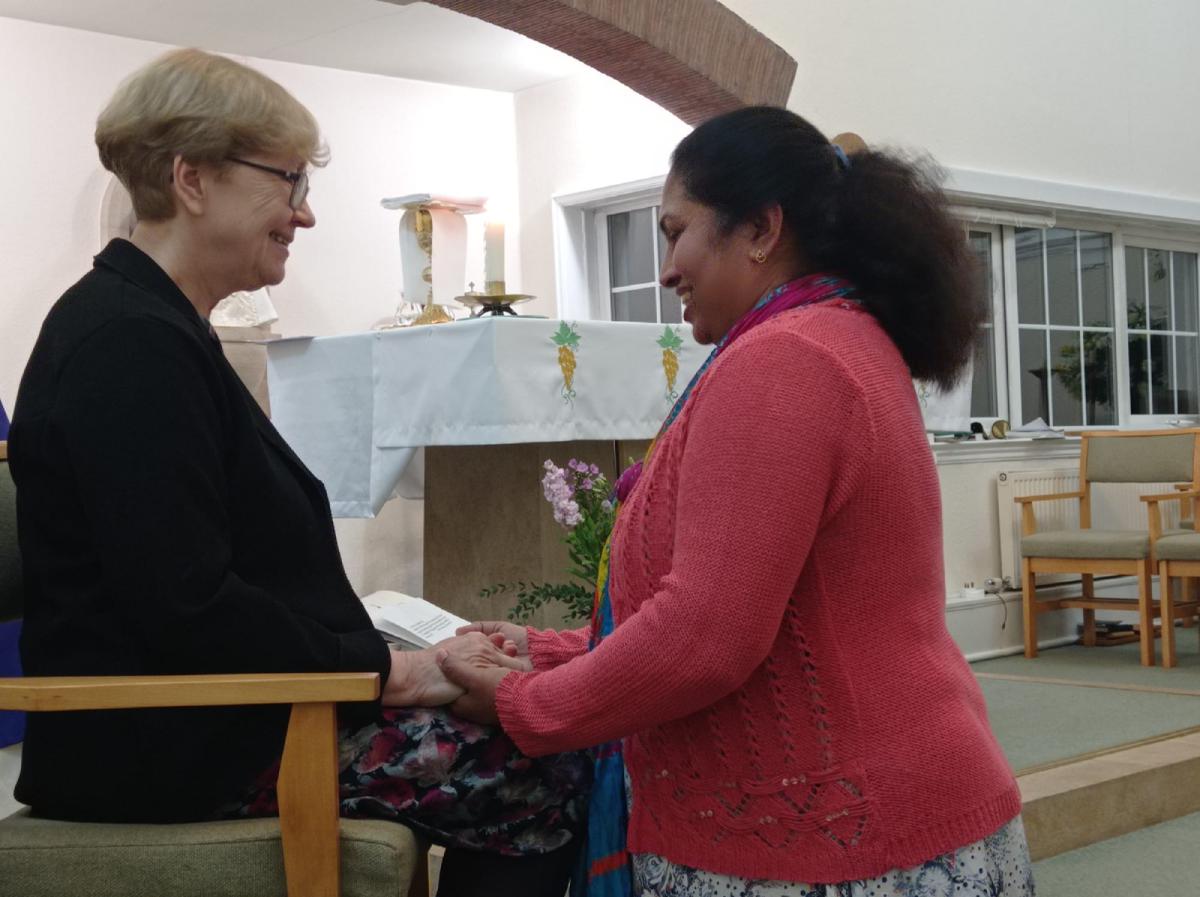ABOUT US
OUR CONSECRATION

Responding to God's call, the members of the Institute want to live the Gospel more fully through the vow of the evangelical counsels. This profession is the fruit of a free, deeply considered decision and is definitive. It is a sign of covenant with God and readiness to serve God and people. The commitment is made to the Church and has the character of a public vow.
Consecration in a secular institute is the same as in a religious order - in value and content - because it refers to God. At the same time, it is quite different from that in a religious order - as to the manner of its implementation - because it is inscribed in secular reality. The implementation of the evangelical counsels, however, is not made easier by this and requires constant responsibility for the personal choices made.
Consecration in a secular institute is the same as in a religious order - in value and content - because it refers to God. At the same time, it is quite different from that in a religious order - as to the manner of its implementation - because it is inscribed in secular reality. The implementation of the evangelical counsels, however, is not made easier by this and requires constant responsibility for the personal choices made.
LIVING THE EVANGELICAL COUNSELS
Obedience. It occupies a special place among the evangelical counsels because, through total surrender to God, it incorporates all the other evangelical counsels. Obedience is the imitation of Christ obeying the Father to the point of death. It requires the consecrated lay person to be able to read God's will in the unexpected situations that occur life in the world, and to be ready to enter into dialogue with those in charge. Obedience exercised loyally and courageously is a source of balance and inner freedom.
"Obedience tells the world that one can be happy without laying stress on personal convenience, but in remaining totally at the disposition of the will of God as it is revealed in daily life, by the signs of the times and by that which is required for the salvation of the world of today.”
(Speech to General Moderators of Secular Institutes Blessed Paul VI 1972)
Chastity. By this vow, the members of the Institute, responding freely to God's call, commit themselves to giving their whole lives to Him. As a visible sign of the Kingdom of God, it proclaims a hope that sees its fulfilment in the life to come. It bears witness to the transient nature of earthly life and shows the supreme value of the human person, who was created by God and redeemed on the cross by Jesus Christ. Chastity requires members to know how to transform their solitude into openness to others.
“To live chaste celibacy tells the world that we can love with a disinterestedness which springs from the heart of God and that one can devote oneself generously to all, above all the most abandoned , without binding oneself to a particular person”
(Speech to General Moderators of Secular Institutes Blessed Paul VI 1972)
Poverty. By the vow of poverty, the members of the institute give to God all that they possess and commit themselves to imitate Christ, who, being rich, became poor for us. While retaining the right to property, lay consecrated women are to be mere stewards of goods and commit themselves to submit this stewardship to those responsible in the Institute. Poverty leads to treating earthly realities as gifts of God. Living in the world, one must learn to dispose of goods, not becoming attached to them, but serving others as far as possible.
"Poverty tells the world that one can live among temporal goods and in the midst of technical progress without becoming enslaved by them."
(Speech to General Moderators of Secular institutes Blessed Paul VI 1972)




